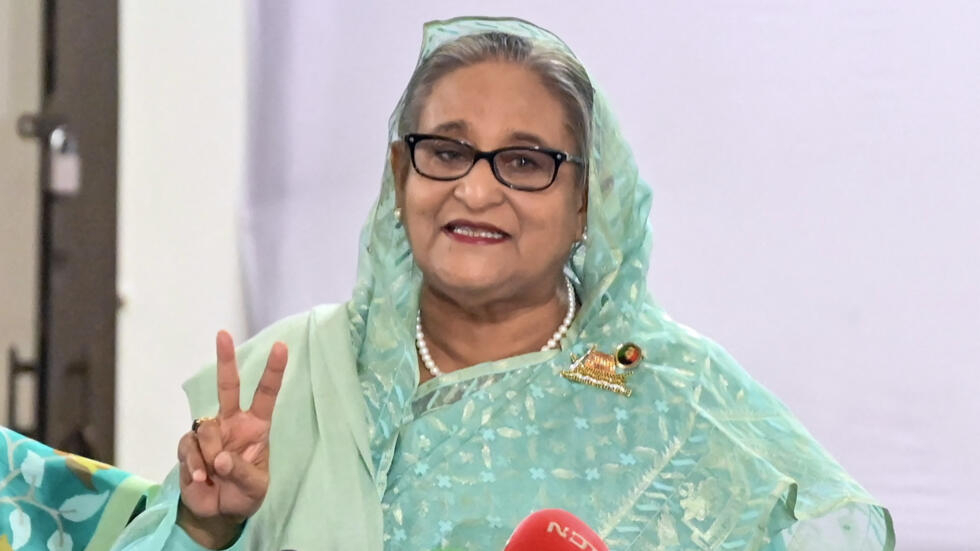Elections without surprises: new mandate for Hasina, now the priority goes to the economy
After the Bangladesh Nationalist Party boycotted the vote, the Election Commission announced a 40 per cent turnout, but many doubt the figure. The Awami League will be able to govern for five years without any real opposition in Parliament. Its challenge will be to stem the economic slowdown.
Dhaka (AsiaNews) – As widely anticipated, the Awami League won yesterday’s parliamentary election. Prime Minister Sheikh Hasina has secured a fifth term (the fourth in a row) with her party taking 223 seats out of 300.
The outcome was a foregone conclusion after the Bangladesh Nationalist Party (BNP) and its allies decided to boycott the vote, calling on their supporters to take part in a two-day strike over the election weekend. Out of 44 registered parties, 16 did not take part in the vote.
Independent candidates, largely aligned with the Awami League, won 62 seats, while Jatiya, the main opposition party after the BNP, took 11 seats. Thus, for the next five years, the Awami League will have almost no opposition in parliament.
Voting in the Naogaon-2 constituency was suspended after one of the candidates died, while the two Catholic candidates running, Jewel Arang, a former MP, and Shanti Reberio, failed to win a seat.
Sheikh Hasina received 249,962 votes in her constituency of Gopalganj-3, about 165 kilometres south of the capital Dhaka. Her closest rival got only 469 votes.
Other prominent figures from the Awami League, such as the Speaker of the National Parliament (Jatiya Sangsad), Shirin Sharmin Chowdhury, and the Deputy Speaker, Matia Chowdhury, were also re-elected.
The Election Commission, led by Kazi Habibul Awal, announced that by 4 pm, 40 per cent of eligible voters had cast their ballot, a figure deemed inflated by some, “ridiculous” by the BNP, which added that there were more dogs and policemen than voters near some polling stations.
In the last elections in 2018, voter turnout topped 80 per cent. In 21 locations, voting was postponed due to various irregularities that led to the arrest of at least 34 people.
Sheikh Hasina was first elected in 1996. Re-elected in 2009, she has remained in power ever since, boosting Bangladesh's economic development.
Although she said she is making “sure that democracy should continue in this country," Human Rights Watch estimates that almost 10,000 activists and opposition supporters have been taken into custody following protests last October, during which 16 people died and more than 5,000 were wounded.
Slamming Hasina's growing authoritarianism, the BNP had called for the establishment of an independent caretake government prior to the vote in order to lead the country into the election to avoid fraud.
However, no prominent figure has emerged from the ranks of the opposition who can really challenge Hasina. The BNP’s historic leader, former Prime Minister Khaleda Zia, is under house arrest on corruption charges.
Bangladesh's economy has experienced the fastest growth in the region in recent years, surpassing even neighbouring India.
Per capita income has tripled, while the World Bank estimates that more than 25 million people have been lifted out of poverty in the last 20 years.
Bangladesh is the world's second largest clothing producer after China; for this reason, it also enjoys some support from Western countries. The big clothing brands are aware that a withdrawal of concessions to the sector would affect millions of workers.
However, starting in 2022, the economy has slowed, with inflation rising to 9.5 per cent in November. For many observers, Hasina's priority will now be to manage the consumer market and prevent any political fallout from extant economic problems.







.png)










